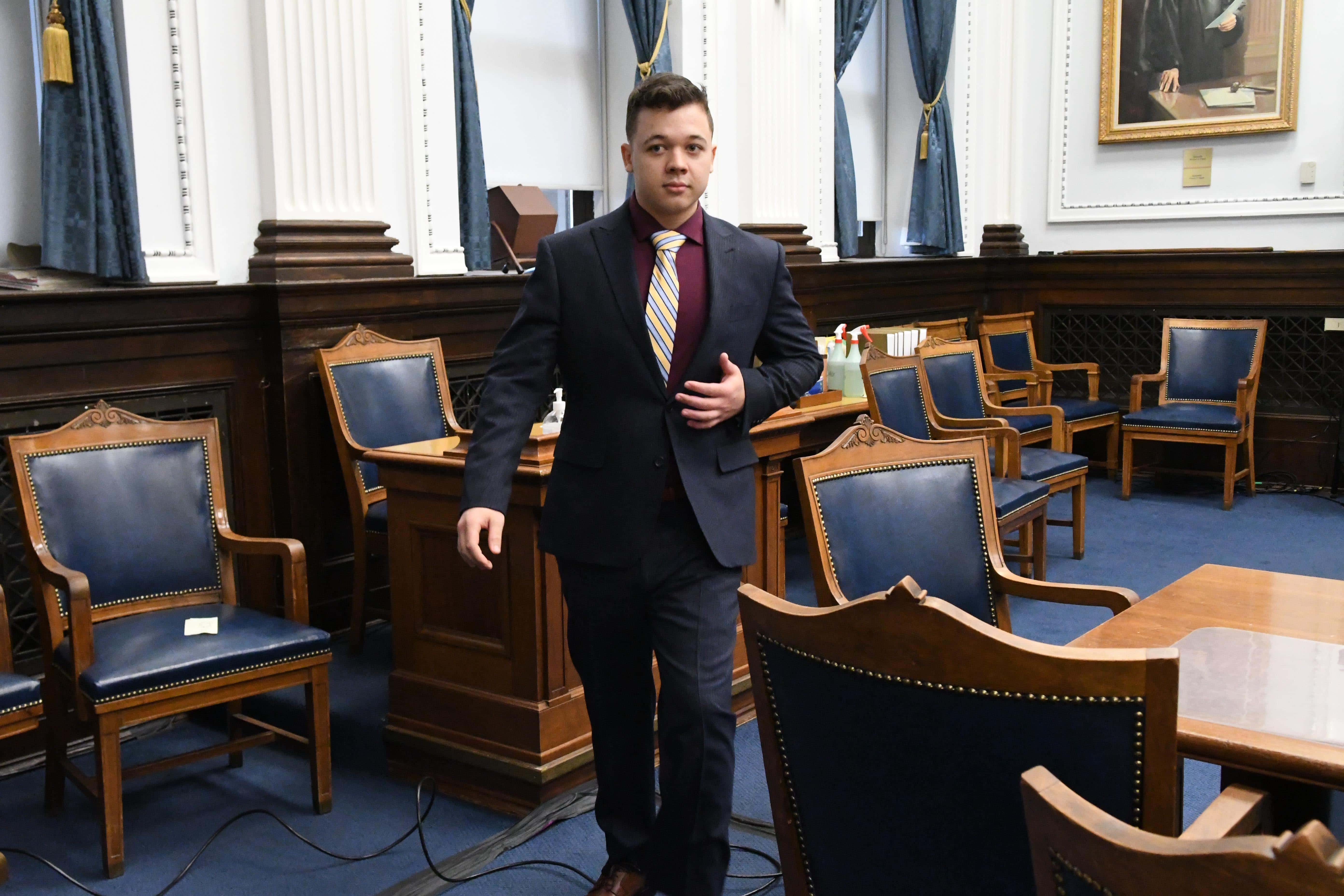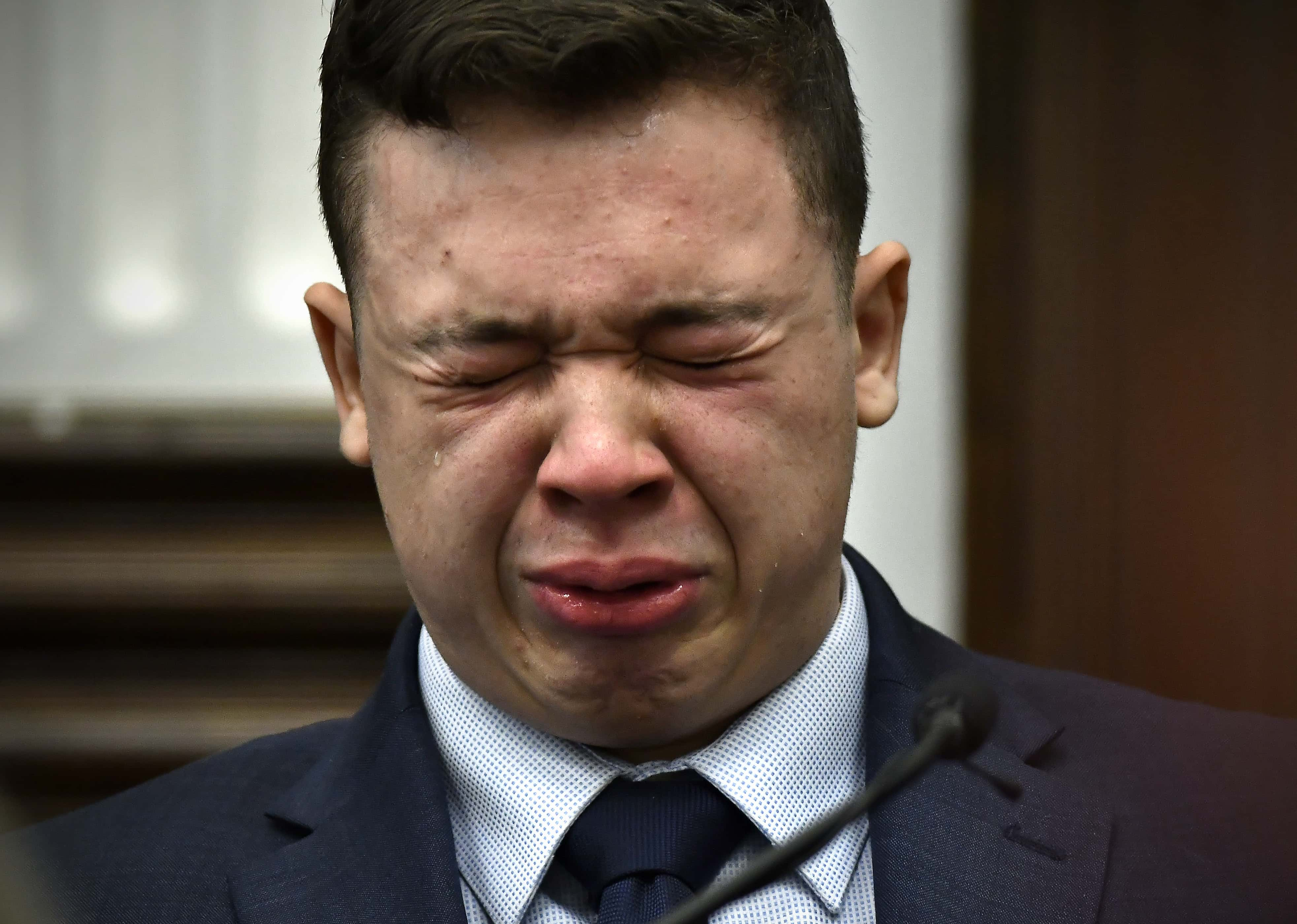Kyle Rittenhouse trial: 5 things to know ahead of closing arguments on November 15

The trial of Kyle Rittenhouse will begin to wind down with closing arguments on Monday, November 15, 2021. It comes after the prosecution spent five days presenting arguments, as compared to the defense's two-and-a-half days. The highly contentious trial has had the nation on edge, especially over Judge Bruce Schroeder's behavior, which many have seen as favoring the defense.
On November 10, the prosecution's case nearly collapsed after the defense called for a mistrial, which the judge took "under advisement". The cloud only added to the already dramatic trial, which has seen the judge get into heated debates with the lead prosecutor Thomas Binger, which has caused quite a stir online. Luckily for the prosecution, the judge decided to go on, leading to a last-minute request for additional lower charges to be added.
RELATED ARTICLES
Kyle Rittenhouse: As acquittal looks possible, National Guard put on alert in Kenosha
Rittenhouse trial judge Bruce Schroeder's kids threatened with 'heinous homicide' in nasty emails
As we previously reported, it appears as if Rittenhouse will be acquitted of all charges, which is why the prosecution has asked for additional charges to be added. The jury will also have these to weigh on when they begin their deliberations after closing arguments. Ahead of that key moment, here are five major things you need to know about the trial so far.

Additional charges filed
The trial for Rittenhouse began with six original charges against the teen. That includes First-degree reckless homicide, First-degree recklessly endangering safety, First-degree intentional homicide, Attempted first-degree intentional homicide, and Possession of a dangerous weapon by a person under 18. Of these, reckless homicide is the most serious and will carry a life sentence if convicted.
But, given that many aren't convinced the prosecution has presented a strong case, on November 12, the state asked for additional charges to be included. The judge decided to decline some of those charges but allowed a second-degree intentional homicide and a first-degree reckless homicide to be added in the shooting of Anthony Huber. Judge Schroeder also didn't issue a definitive ruling on the request for second-degree attempted intentional homicide, first-degree reckless endangerment, and second-degree reckless endangerment in the shooting of Gaige Grosskreutz.
A nearly all-White jury will deliberate
Of the original 20 jurors picked for the trial, only 1 is a Black man, while all others are White. Two jurors were excluded one because she was pregnant and the other for telling "an inappropriate joke". Of the remaining 18, 12 will be picked to debate the charges, while the remaining six will stand as alternates. The racial makeup appears to reflect Kenosha's population, which is 87% White according to the US Census Bureau.
The judge ruled that it was unlikely he would sequester the jury during deliberations. It's unclear if this would have any effect on their decisions, given that the highly polarizing trial has become a key talking point all over the nation.
Rittenhouse may walk free
Even with the additional charges, there's reportedly a good chance Rittenhouse will walk free. For one, many experts have noted the prosecution has failed to provide compelling evidence or testimony. Secondly, Judge Schroeder has also called out Binger and the prosecution several times, leading to the threat of a mistrial. Adding to that, there's also Grosskreutz's own testimony, where he acknowledged he raised his gun first at Rittenhouse.
On top of that, many believe Rittenhouse's emotional testimony was far more convincing. While recounting events of the night, the teen broke down, leading to a 10-minute break. Chicago attorney Karen Conti told KATV, "He (Rittenhouse) was very adamant, he was clear, he was convincing that he had no other alternative but to pull out his gun and shoot. I think when he broke down on the stand, it was pretty compelling." That testimony could ultimately prove to be the key for Rittenhouse.

Closing arguments won't be swift
The judge has ruled that both the defense and prosecution will have exactly 2.5 hours to make their closing arguments. That means the whole process could last about five hours. It is likely that the prosecution will replay some of the video evidence from the trial in their bid to show Rittenhouse as the instigator of the bloodshed. On the other hand, the defense will shore up their arguments he was merely acting in self-defense, as admitted by Grosskreutz on the stand. To bolster their argument, they have Rittenhouse's emotional testimony and the judge siding with them on some of the additional charges.
The 12 jurors will then be decided by a random draw to deliberate on the charges, as instructed by Judge Schroeder. The jury's instructions are due by 4:00 PM on November 14 but are not yet publicly available. It's unclear how long they will take, given the large number of charges Rittenhouse faces. It could be hours or even days.
Kenosha braces for violence
With a verdict potentially hours away, the city of Kenosha has braced itself for possible violence if Rittenhouse is acquitted. Governor Tony Evers announced on November 12 that 500 National Guard troops were "on standby" outside the city. They wouldn't be immediately deployed though, as he insisted that local law enforcement was still Kenosha's first line of defense.
Other cities are also reportedly bracing for violence, with Chicago PD canceling its weekend leave for officers. But so far, Kenosha is the only confirmed city to have deployed the National Guard in advance. At the heart of the debate is the Second Amendment, and the legal system's attitude towards White Americans.










